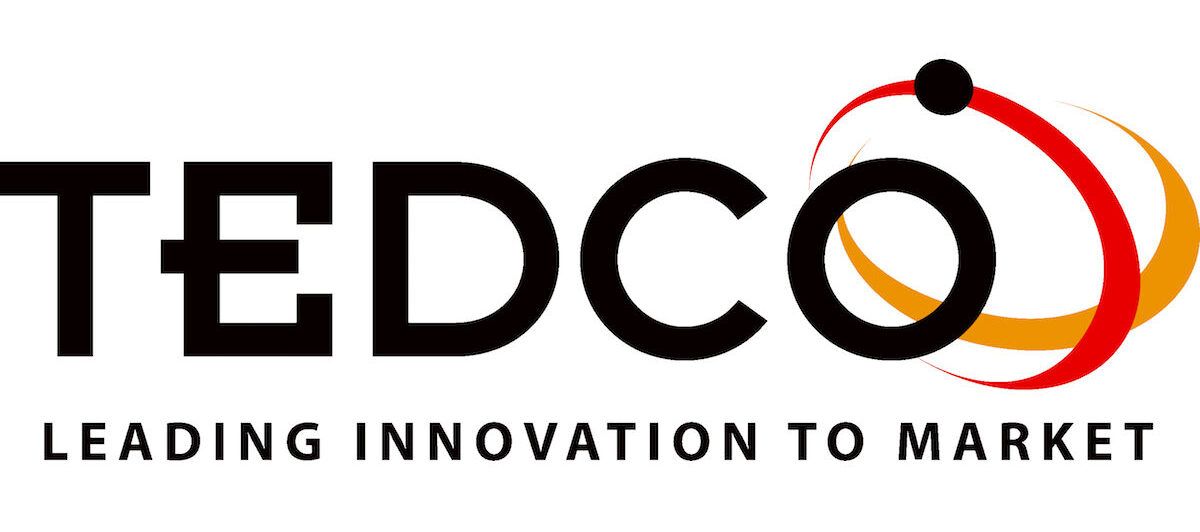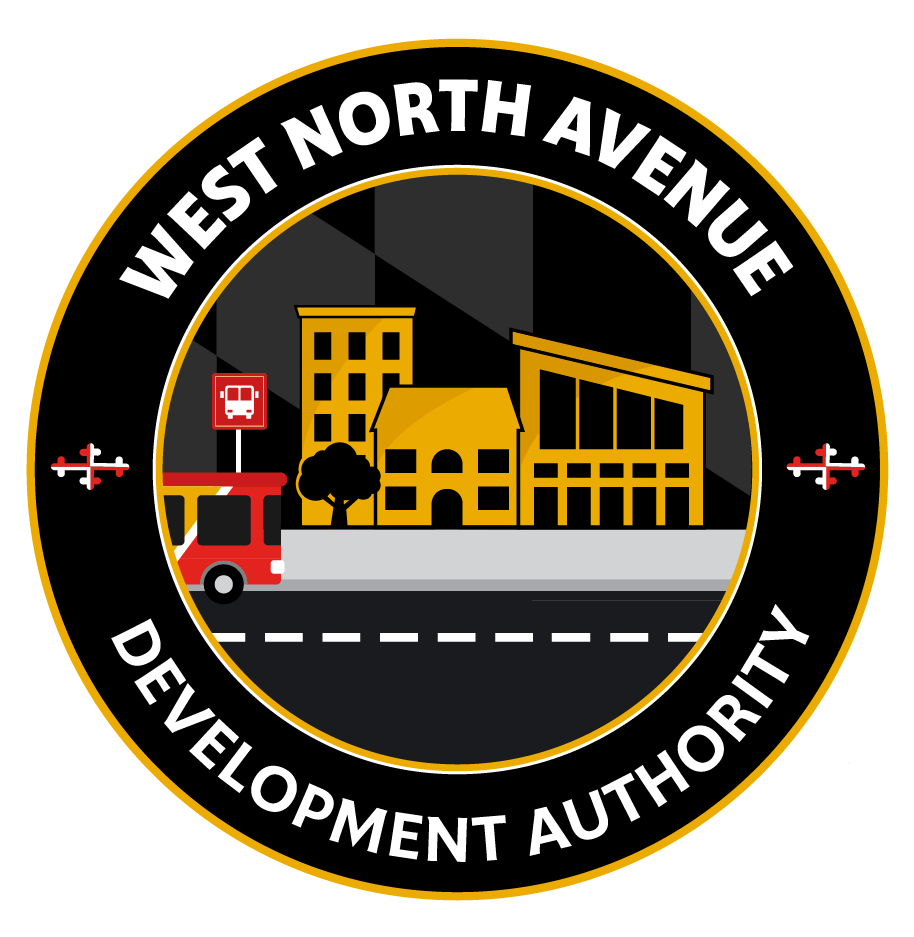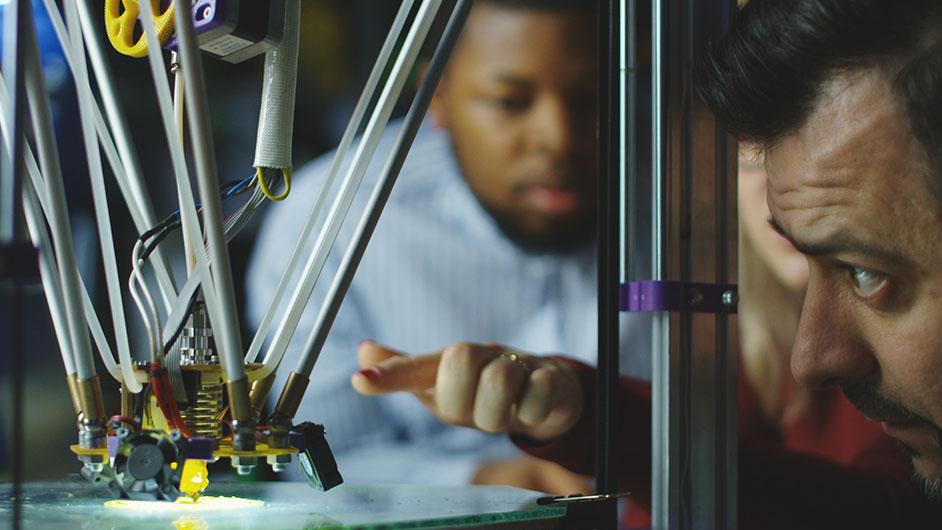
Maryland is fortunate to have so many Federal labs within its borders. These Federal labs have an interest and a mandate to transfer their innovations to the commercial sector. TEDCO has always worked with the Federal labs to support their technology transfer efforts and to connect the labs to Maryland entrepreneurs, who are creating technology-based companies, and to existing companies, which are adopting new technologies to become more competitive and to scale. Additionally, the Federal labs have equipment and facilities with excess capacity that they are willing to make available for a fee.
TEDCO wants Maryland entrepreneurs to be aware of and to have access to these capabilities. To facilitate this exchange, TEDCO has entered into formal agreements with federal labs to provide access to their technology, data sets, facilities, and more, all to benefit Maryland entrepreneurs.
Contact:
For more information about TEDCO’s Federal Tech Transfer Programs, contact Kim Mozingo (kmozingo@tedco.md).
FEDERAL TECH TRANSFER FACT SHEET
FEDERAL TECH TRANSFER FACT SHEET (SPANISH)
N-STEP
N-STEP strives to support Maryland researchers by building upon their past experience and allowing them to explore entrepreneurial careers.
SBIR/STTR Proposal Lab
TEDCO selects up to 25 companies to participate in the SBIR/STTR Proposal Lab.
DefTech
Supporting businesses by leveraging cutting-edge technology, facilities, equipment, and expertise found in the Maryland Department of Defense Labs.
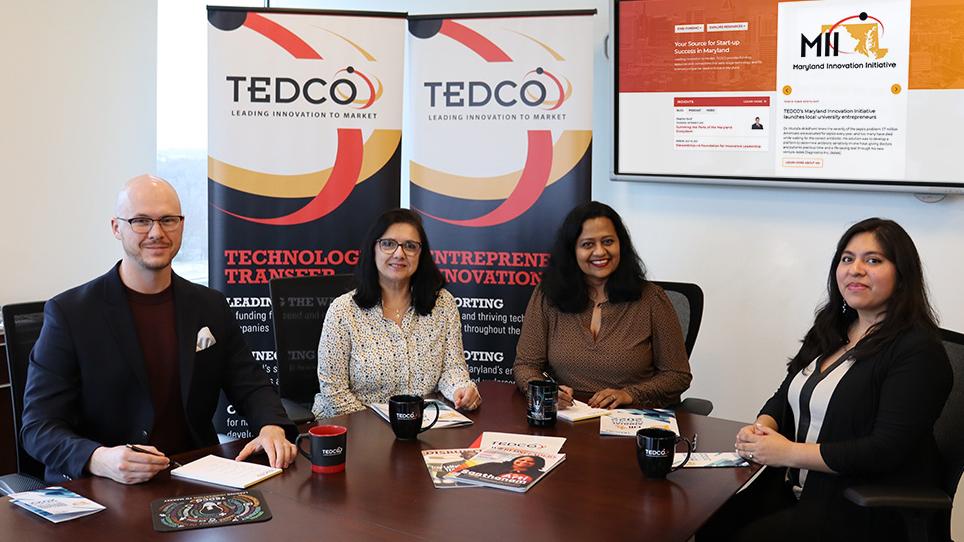
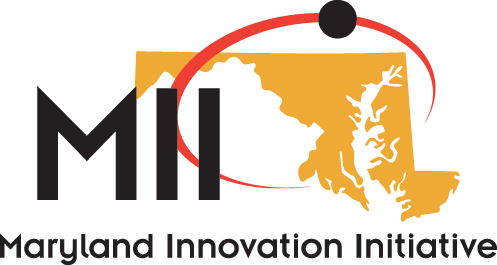 The Maryland Innovation Initiative (MII) was created as a partnership between the State of Maryland and five Maryland academic research institutions (Johns Hopkins University; Morgan State University; University of Maryland, Baltimore; University of Maryland, Baltimore County; University of Maryland, College Park). The program is designed to promote commercialization of research conducted in the partnership universities and leverage each institution’s strengths.
The Maryland Innovation Initiative (MII) was created as a partnership between the State of Maryland and five Maryland academic research institutions (Johns Hopkins University; Morgan State University; University of Maryland, Baltimore; University of Maryland, Baltimore County; University of Maryland, College Park). The program is designed to promote commercialization of research conducted in the partnership universities and leverage each institution’s strengths.
MII was created to foster the transition of promising technologies having significant commercial potential from Qualifying Universities, where they were discovered, to the commercial sector, where they can be developed into products and services that meet identified market needs. Specifically, it is the intent of the program to foster the commercialization of such technologies through technology validation, market assessment, and the creation of start-up companies in Maryland-based on a technology from a Qualified University (a University Start-up), and to accomplish this through collaborations between various schools, departments, and institutions within and among the Qualifying Universities and among other research organizations in the State.
Funding Levels
MII funds up to $415,000 for “Sole Applicants” through two phases of the program:
- Technology Assessment – Technology Validation and Market Assessment, 9 months, up to $115,000
- Company Formation – Commercial Launch, 9 months, up to $300,000
Who Can Apply
The following qualifying universities are eligible to apply for funding for the Technology Assessment phase of the program:
- Johns Hopkins University
- Morgan State University
- University of Maryland, Baltimore
- University of Maryland, Baltimore County (UMBC)
- University of Maryland, College Park
All Qualifying Universities are eligible to apply for funding for the Technology Assessment Phase of the Program.
University Start-ups: (i) that have licensed technologies from a Qualifying University within twelve (12) months of applying for a Program award; and (ii) that are located in Maryland; are eligible to apply for the Company Formation Phase.
In all Phases, proposals must be directed to the commercialization of a technology or group of technologies: (i) owned by a Qualifying University; (ii) disclosed to a Qualifying University’s technology transfer office (TTO); and (iii) for which there exists appropriate intellectual property protection. Each applicant must also work with a MII Site Miner prior to application submission.
Subject to meeting the Program requirements, awards of up to $415,000, which is the maximum award for projects spanning two Phases of the Program, may be made for a project at a single Qualifying University (a “Sole Application”). A joint award (see Guidelines for criteria) may be made to two or more Qualifying Universities submitting a joint proposal and may total up to $465,000.
When To Apply
Applications may be submitted at any time and will be reviewed every other month. Complete Initial Applications, Re-submissions are due by 5:00 p.m. on the 1st business day of each month, and will be considered in the next review cycle.
DEI Registration
Pursuant to the Economic Development Article of the Maryland Code, TEDCO is required to foster inclusive and diverse entrepreneurship and innovation throughout Maryland. Accordingly, TEDCO is now collecting race, gender, and ethnicity data to be used, in aggregate, to better understand the communities that are accessing TEDCO’s resources/funding. This means that all MII applicants must first obtain a one-time TEDCO ID before filling up the MII application portal.
Once registered, applicants can access any of TEDCO’s resources and funds using their unique TEDCO ID, reducing redundancies in data entry for our stakeholders. Please click below to register.
After completing the form, an email will be sent with the registration number. You can then proceed with the application process. Please note – If you have previously obtained the TEDCO ID you should use the same ID for all TEDCO applications going forward. If you forgot your TEDCO ID send an email to tedcosupport@tedco.md.
MII Application Deadlines 2023-2024
- January 4, 2024
- March 1, 2024
- May 1, 2024
- July 1, 2024
- September 2, 2024
- November 1, 2024
Other Requirements
Site Miners are individuals selected by the MII program to assist start-ups and faculty in the process of submitting a strong business-oriented application, focused on commercialization. These individuals work as liaisons between the applicant and the MII program, providing valuable input and feedback prior to submission of an MII application.
The MII program requires each applicant to engage with a Site Miner a minimum of two weeks prior to application submission. Involving a Site Miner early in the application process increases an applicant’s odds of success.
Site Miners are the ‘champions’ for each application during the review process and are expected to present each application at the review committee meeting.
Each application must include this letter of support, signed by a Site Miner, in order to meet compliance requirements.
If you do not know your Site Miner’s name, please email sgoncalves@tedcomd.com for assistance.
MII Awards
Maryland Innovation Initiative Board
Chair
Renée Winsky, Bay One Group, LLC
Members
Kenneth Porter, University of Maryland, College Park
Mary Morris, University of Maryland, Baltimore
Wendy Martin, University of Maryland, Baltimore County
Wayne Swann, Morgan State University
Accelerating stem cell research and cures.
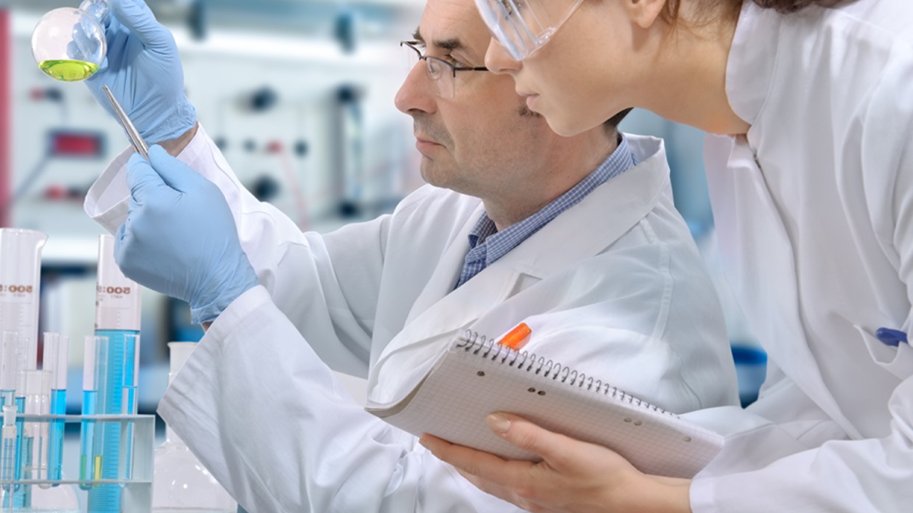
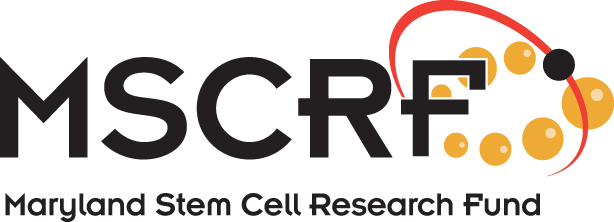
Maryland Stem Cell Research Fund (MSCRF) was established by the governor and the Maryland General Assembly under the Maryland Stem Cell Research Act of 2006. The purpose of the fund is to promote state-funded human stem cell research and medical treatments through grants to public and private entities in the state.
MSCRF offers seven programs (Launch, Discovery, Validation, Commercialization, Clinical, Post-doctoral Fellowships and Manufacturing Assistance) to accelerate research and commercialization of human stem cell-based technologies. For eligibility and to apply visit MSCRF funding opportunities.
Useful Documents
Administrative Documents
Conflict of Interest
Maryland Stem Cell Scientific Peer Review Committee Member CDA
MSCR Commission Member CDA
Template of Research Grant Agreement
Maryland Stem Cell Economic Study
Maryland Stem Cell Economic Study – 2021
Archived Public Meeting Notices
ARCHIVED PUBLIC MEETING NOTICES
For Additional Fund Information
MSCRF Annual Reports
Maryland Stem Cell Research Commission
Chair
Diane Hoffman, University of Maryland School of Law
Vice Co-Chairs
Scott Bailey, Johns Hopkins School of Medicine
Rachel Brewster, University of Maryland, Baltimore County
Members
Ira Schwartz, Office of the Attorney General
Margaret Conn Himelfarb, Johns Hopkins Bloomberg School of Public Health
Haig Kazazian, Jr., McKusick-Nathans Institute of Genetic Medicine
David Mosser, University of Maryland, College Park
Barbara Nsiah, United Therapeutics
Linda Powers, Toucan Capital
Rabbi Avram Reisner, Congregation Chevrei Tzedek
Curtis Van Tassell, Research Geneticist


